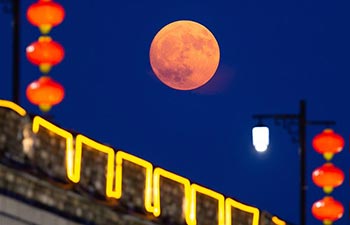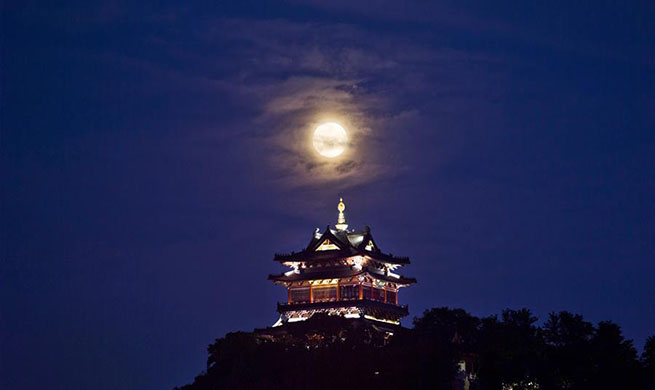by Peter Mertz, Gao Shan
COLORADO SPRINGS, the United States, Sept. 24 (Xinhua) -- Mining industry insiders were celebrating over the announcement that the world's most populous country had earned more respect at the table with the world's premier gold producers and investors.
"The Chinese gold industry has developed phenomenally over the past couple of decades, and China is now the largest producer and consumer of gold globally," said David Harquail, chair of the London-based World Gold Council (WGC), on Monday.
WGC, the market development organization for the gold industry, today represents 92 percent of the world's gold and silver producers in 80 countries, and its mining companies are traded on the world's biggest stock exchanges.
On Monday, elation followed the official news that the Shandong Gold Group became WGC's 25th member, and that Song Xin, chairman of the China Gold Association, would chair a new China Chapter of the World Gold Council.
"This will give China a much stronger voice in the world gold market," Song told Xinhua.
In 2017, China's gold production reached 426 tons, while gold consumption reached 1,089 tons. China is not only the world's largest gold producer but also the top gold consumer and gold jewelry manufacturer in the world.
"The China Chapter will enable greater interaction between the Chinese gold industry and the international gold market, further enhance the Chinese gold industry's international influence, and promote its continued rapid evolution," Song told Xinhua.
In an exclusive interview with Xinhua, Song explained many ways that the new China Chapter will elevate China's global position in the lucrative gold business.
"More and more front-running Chinese mining companies will join the association because they know that China has been awarded a much higher status in the WGC," Song explained.
China's gold industry and market have developed rapidly in recent years and continue to gain influence in the global gold marketplace, according to industry insiders.
"The World Gold Council is a good platform and very helpful to integrate China's gold industry with the rest of the world," Song said.
"In the near future there will be two more Chinese mining companies joining the group," Song disclosed to Xinhua.
The elevation of Song represents a great victory for the highly regarded gold expert, who has been working to secure China's involvement for two decades.
WGC officials told Xinhua that China began working toward full WGC status in the 1990s.
"It was a major success story when we went into China," said John Mulligan, director of Member and Market Relations at the WGC.
WGC quickly realized that the Chinese market was restrained on several levels, so it started working with the Chinese side to help them with policy guidelines, Mulligan said.
China started implementing policy changes to upgrade gold infrastructure in 1999-2000, he said.
In 2001, the formation of the Chinese Gold Association set the ball in motion, and the Shanghai Gold Exchange was created in 2002, the first of its kind in China.
"We saw the deregulation of the market, the legalization of gold investment, and China's demand for gold," Mulligan said of WGC's desire to bring the Chinese market fully into the fold.
"The World Gold Council focuses on the realization of far-reaching structural reform with a long-lasting impact on the gold industry, and actively contributes to a sustainable gold mining industry," said Chen Yumin, chairman of Shandong Gold Group.
"(WGC) enjoys an authoritative position in the global gold market and plays a major role in the development of the gold industry," Chen added.
















